caffungo
Growing in Solidarity
[2021] caffungo aims to create fair job opportunities for people at risk of social exclusion by growing oyster mushrooms for the local gastronomy on recycled coffee grounds. The project is not only super local, but also does good for the environment, supports local agriculture, secures regional value chains, and creates fair jobs.
The project was developed for and with the residents of the “House of Solidarity” (HoS) in Bressanone and later partnered up with the “Bühlerhof”, which brought the necessary expertise for cultivation and contacts for food distribution into the project. The concept can be seen as a blueprint for social actors, also in other regions, that want to join forces to create fair employment opportunities and grow local mushrooms.
The project was to be implemented, but sadly never came to fruition because of external circumstances beyond our control.
category
social project
Master Eco-Social Design, 2021
partners
Haus der Solidarität Brixen
Bühlerhof Brixen
collaborator
Julia Maier
background & matter of concern
Due to the effects of the Corona crisis, finding jobs became a growing challenge for the residents of the House of Solidarity in Bressanone. To counteract this problem, we have devised a project that would have helped to create new, fair, and social job opportunities. It also posed an alternative to the often unstable and exploitative job situations in the low-wage sector where many of the guests of the House of Solidarity usually find their jobs.
The House of Solidarity (HoS) is a social organization that has been supporting people in need since 2002. It shelters a diverse mix of people from all age groups with different life situations and difficulties, like homelessness, addiction, health problems, or refugee status.
Finding a job is not easy in general, but additional struggles such as cultural misunderstandings, language barriers, or missing/uncredited education are making it even harder.
Therefore, the project must meet important requirements that result from the resident's specific life circumstances. Language independence, opportunities for personal and professional development, solidary working conditions, and independence from previous knowledge were considered.
caffungo aims to fulfill all these points while being at the same time as low-tech and sustainable as possible – for people as well as the environment.
project aims
First and foremost, caffungo was a social project, aiming to provide work and a chance for integration for its employees.
It at the same time had a ecological component. When coffee is prepared, less than 1 % of the biomass ends up in the cup, the leftover coffee is usually just thrown away. But, these coffee grounds are an ideal growing substrate as it still contains many nutrients even after brewing.
Reusing the coffee in a second loop, as well as in a third loop as fertilizer for farmers after mushrooms grew on it, caffungo would contribute to a more circular economy.
Furthermore, the mushrooms would grow in repurposed hardplastic buckets from the local milk industry, therfore cutting down on plastic waste.
By processing only local resources in a closed production cycle, caffungo creates a close relationship between the employees, the area, the local gastronomy, and its food.
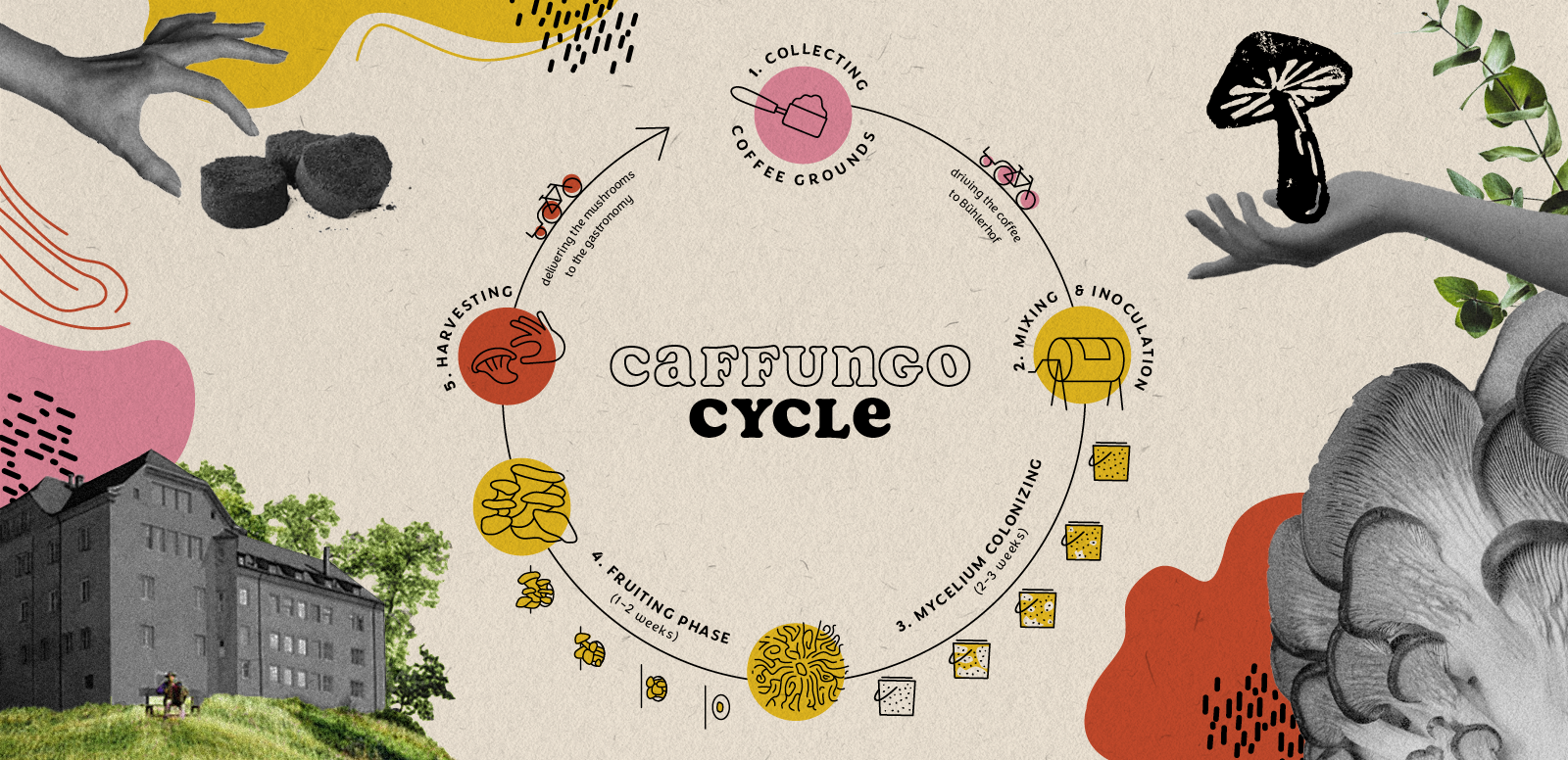
process and testing
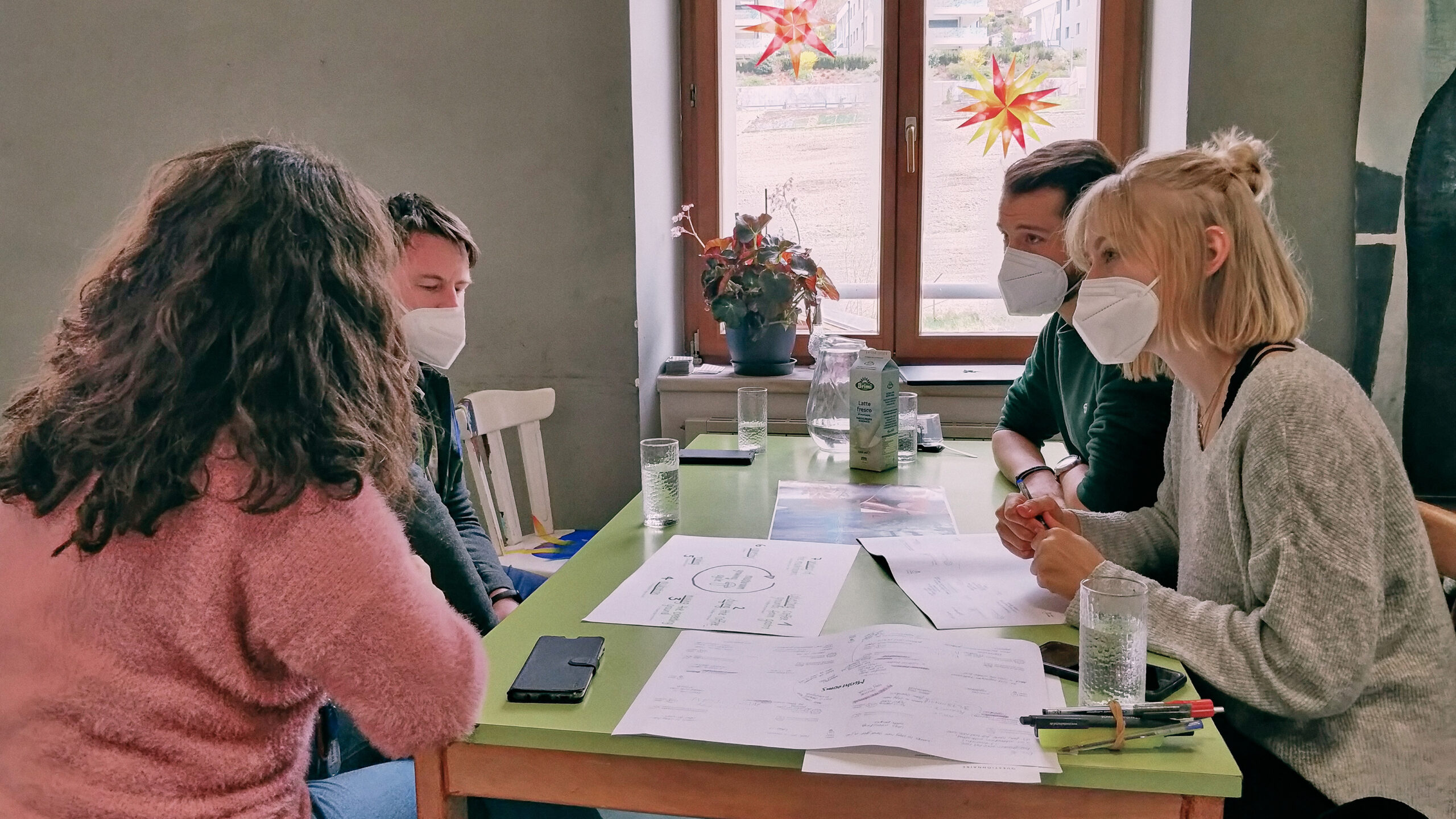
To ensure that the concept would work on the local market, we conducted a survey analysing the gastronomy’s response to our idea. A competitor analysis helped us position caffungo in the market and confirmed the locally unique concept. To not only assess the situation on the market but also the current state of the HoS residents, we conducted interviews and compiled an overview of their backgrounds, feelings, hopes and work experiences.
To better understand what you have to pay attention to when collecting and storing big amounts of coffee grounds as well as how to grow oyster mushrooms, we did some trails growing mushrooms in our flats.
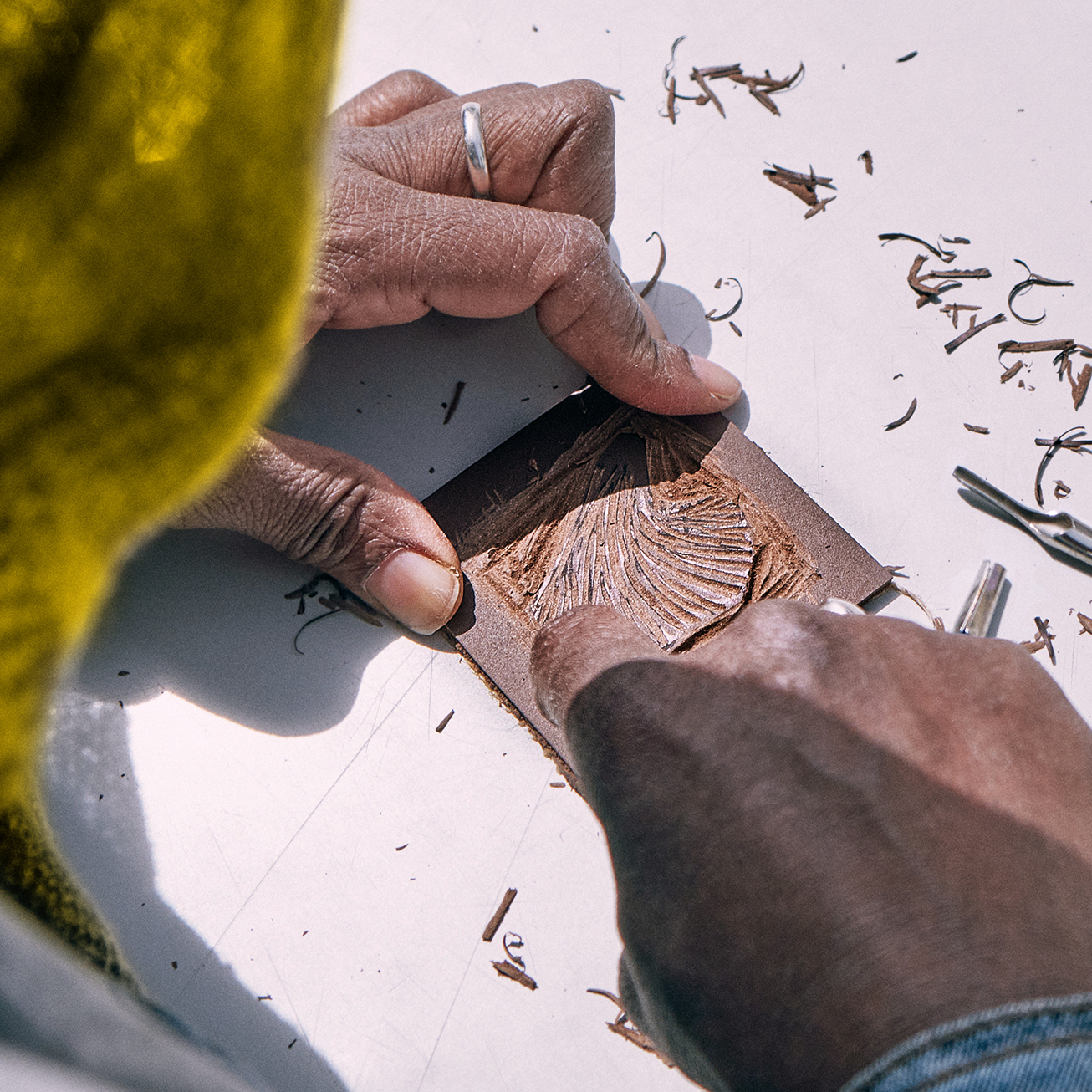
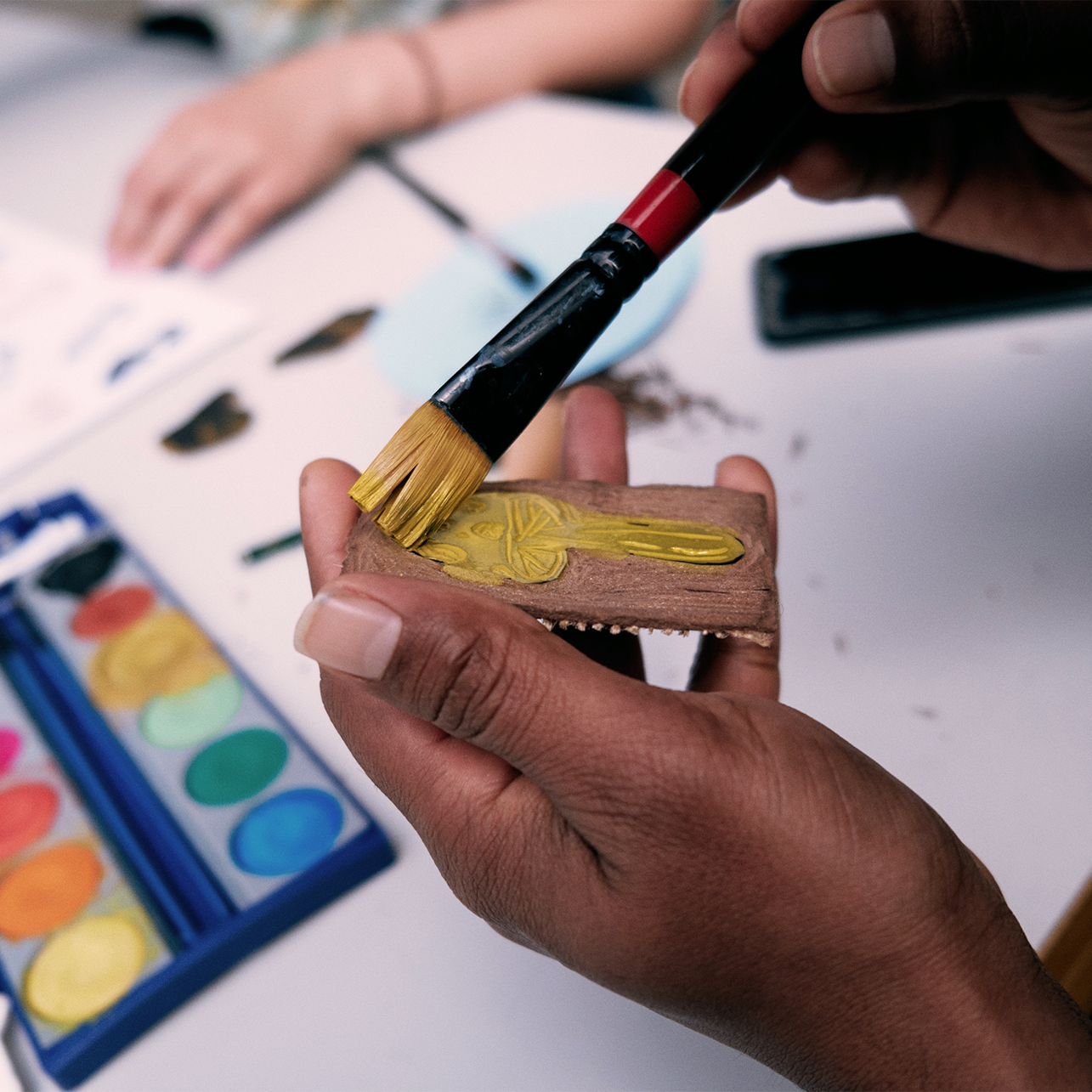
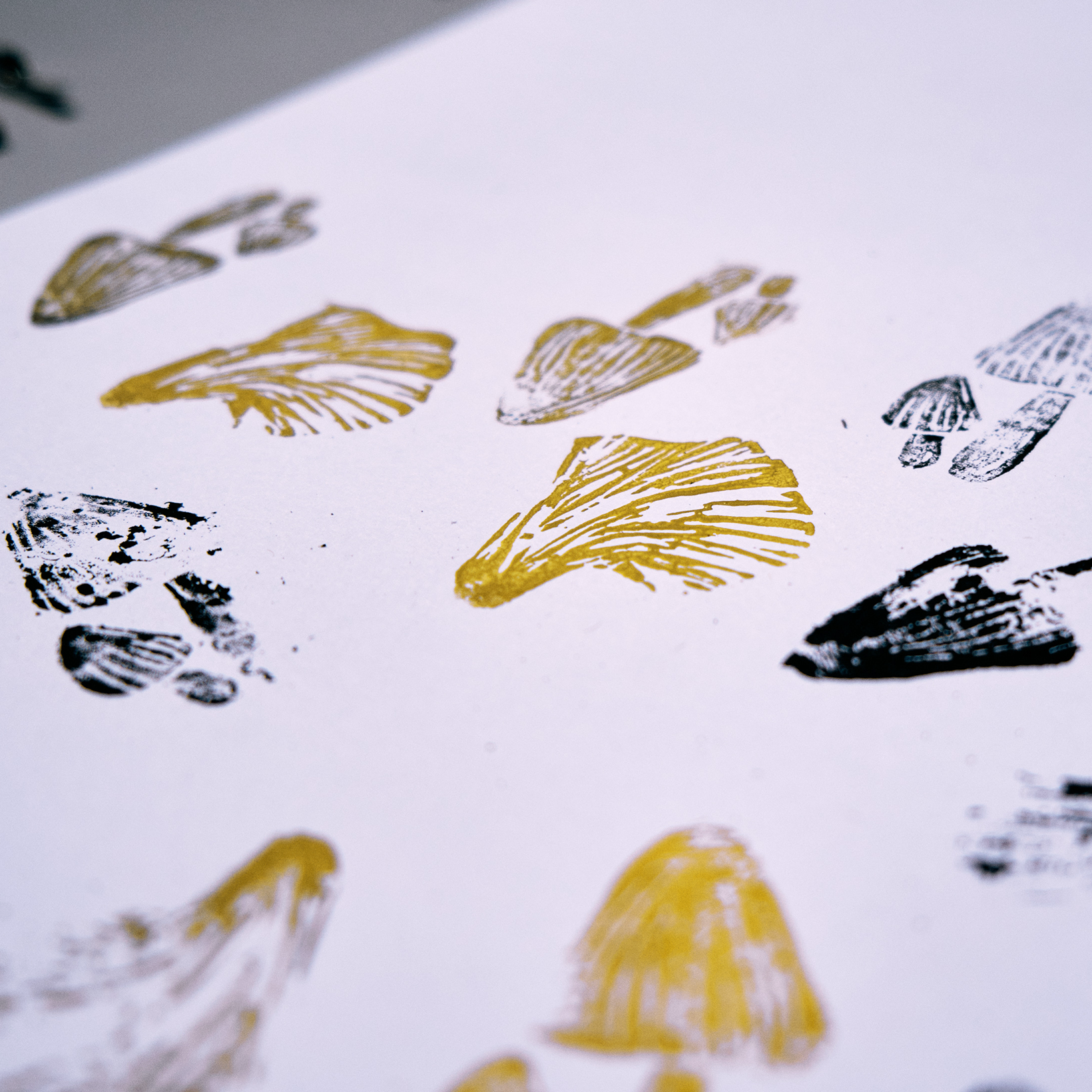
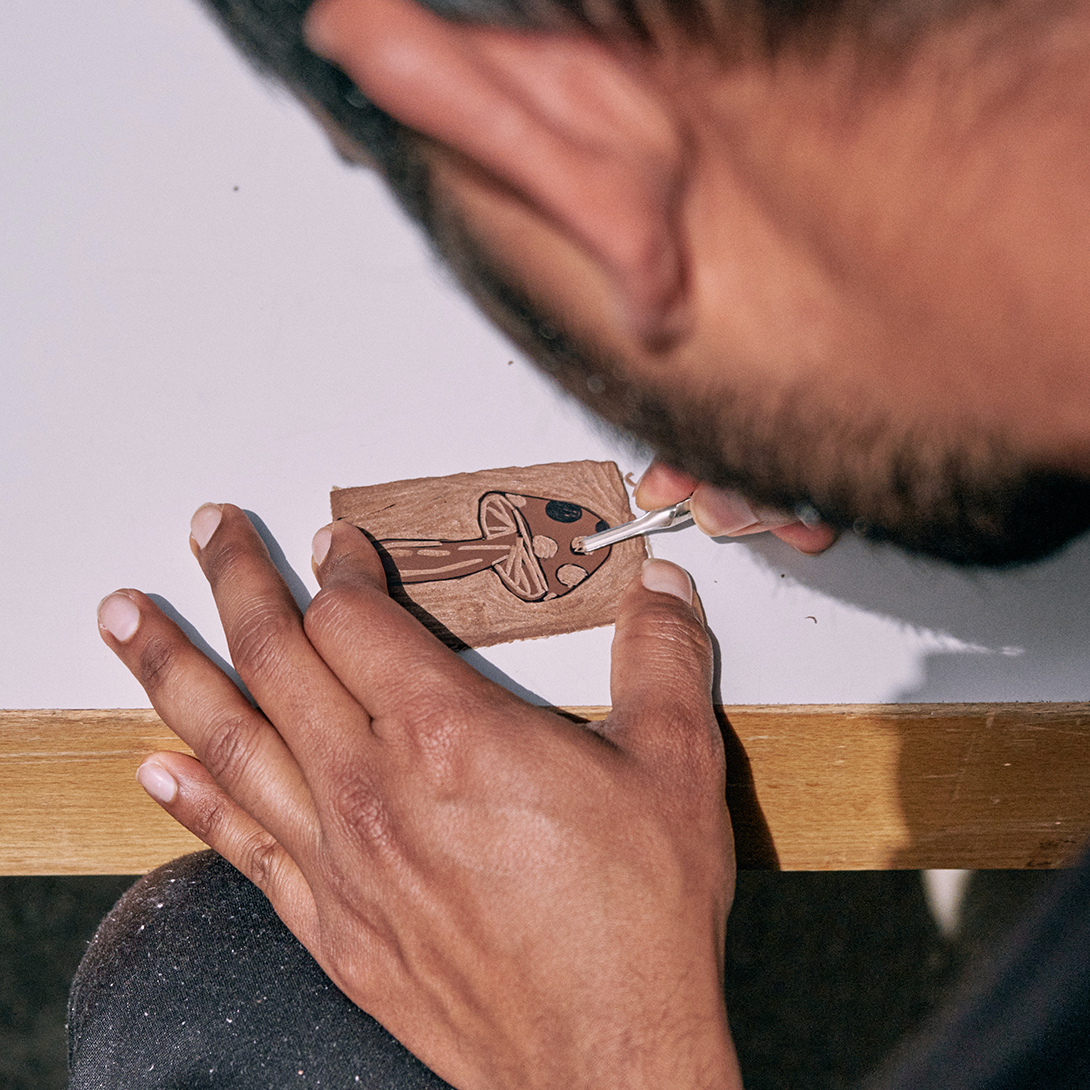
To represent the diverse backgrounds of caffungo and all actors involved, a colourful and friendly visual language was developed. The mushroom stamps designed by the HoS residents, which were the result of a co-design workshop, became a central design element of the corporate design.
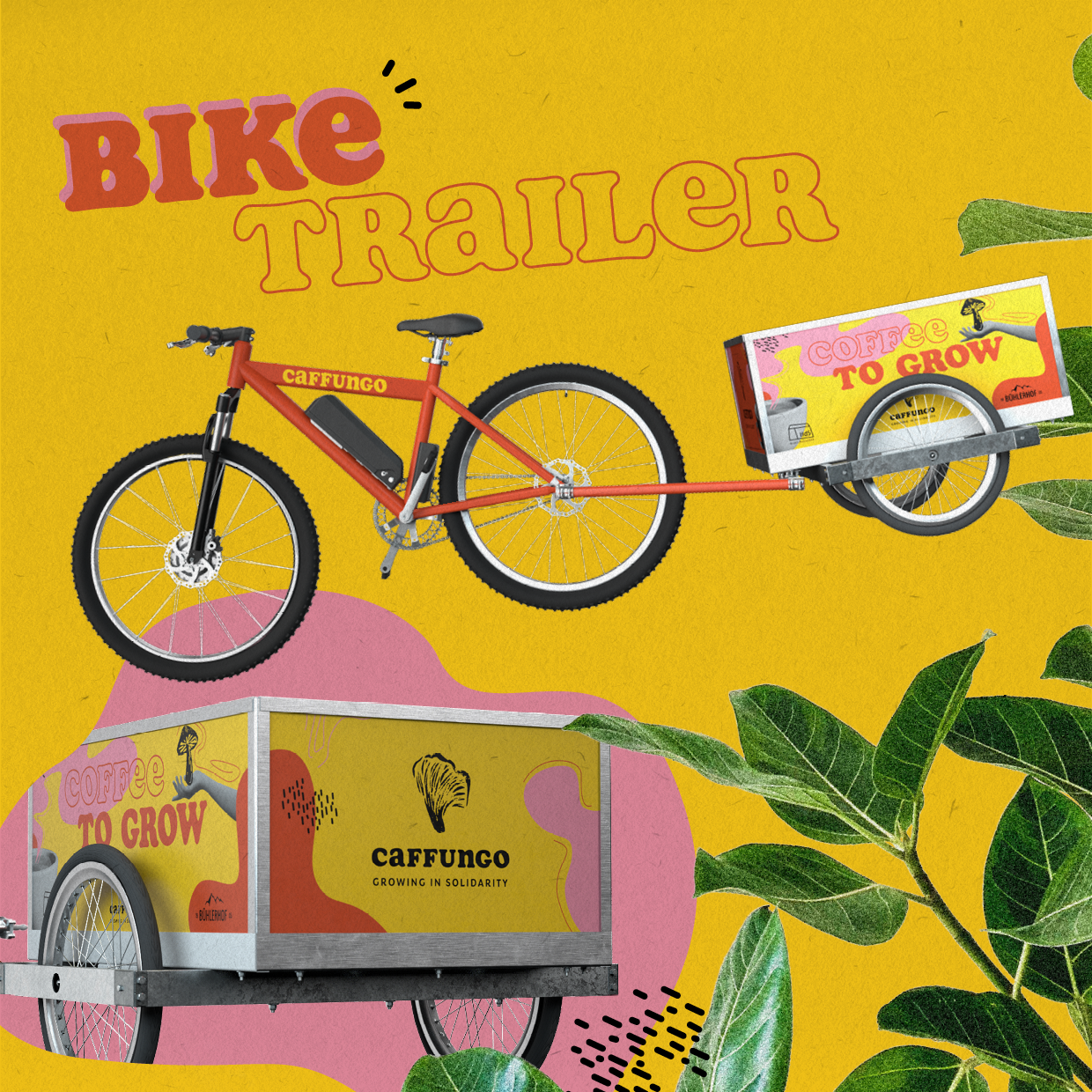
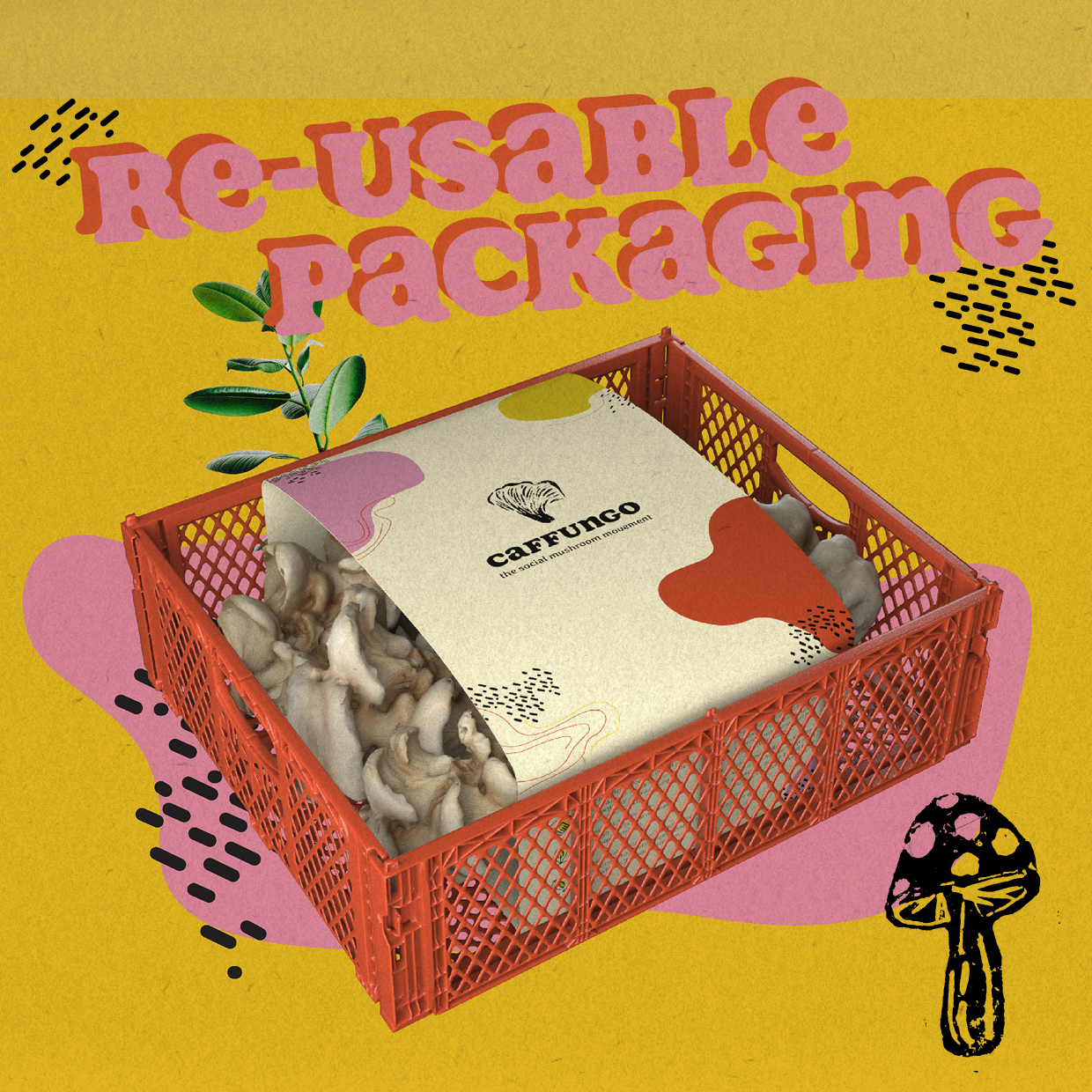
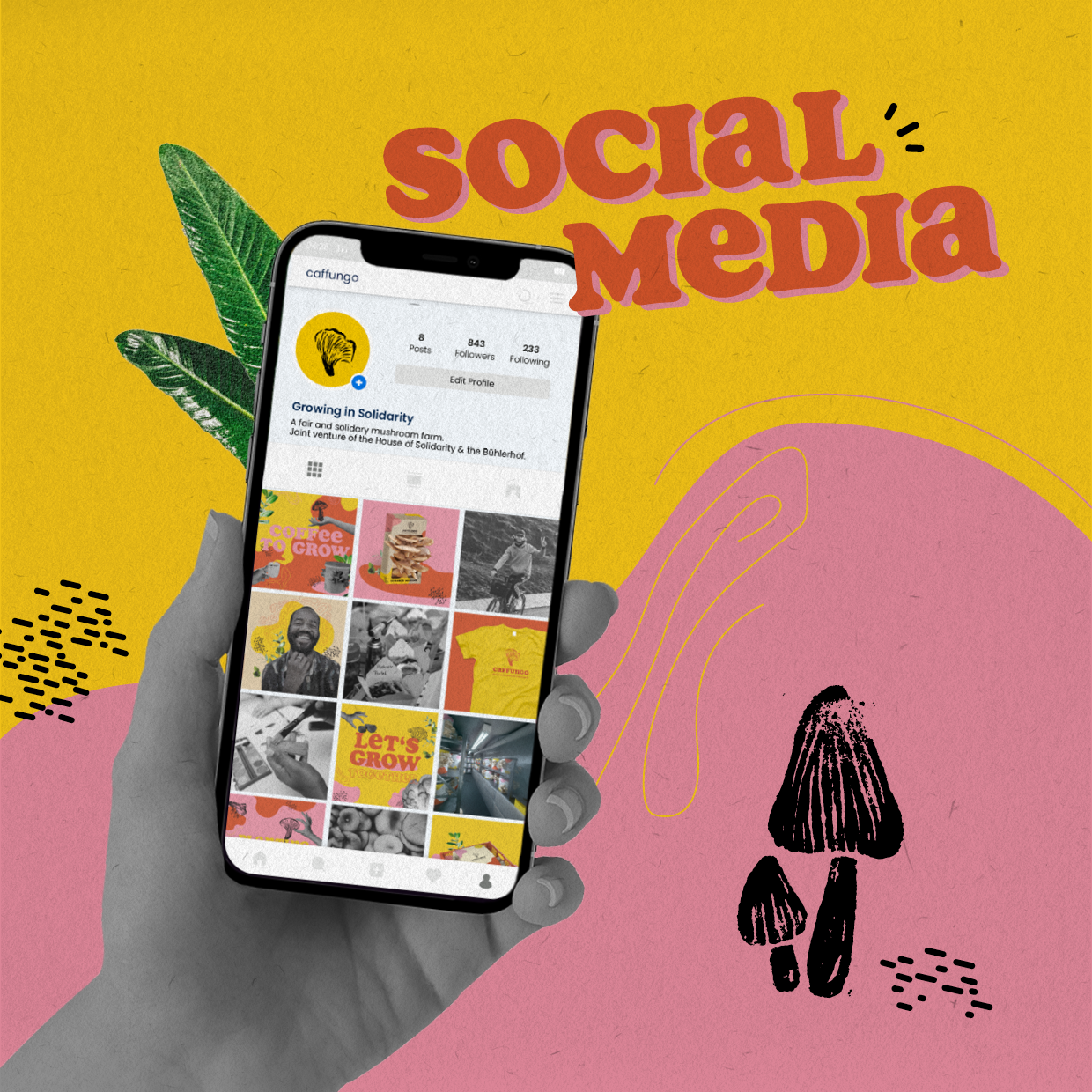
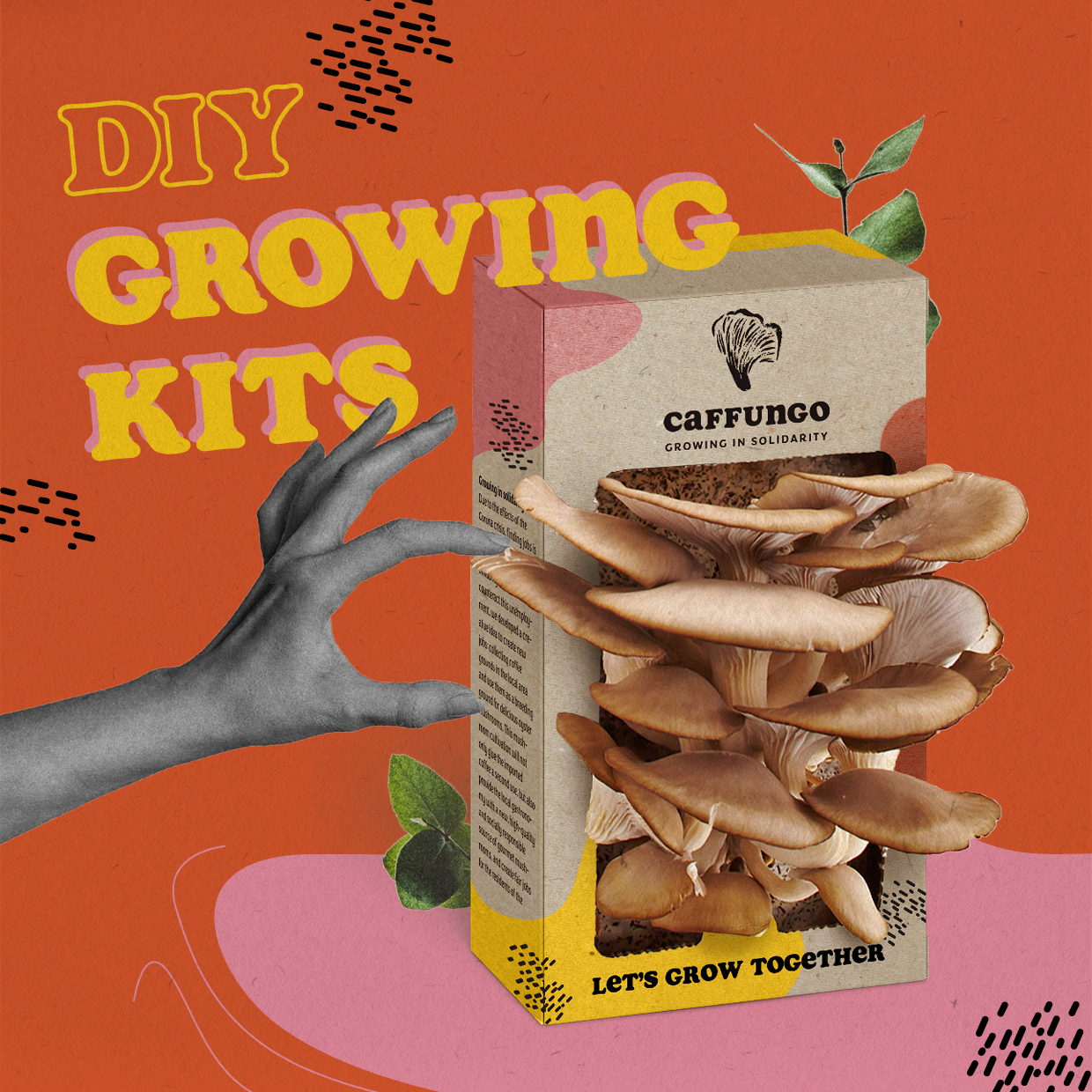
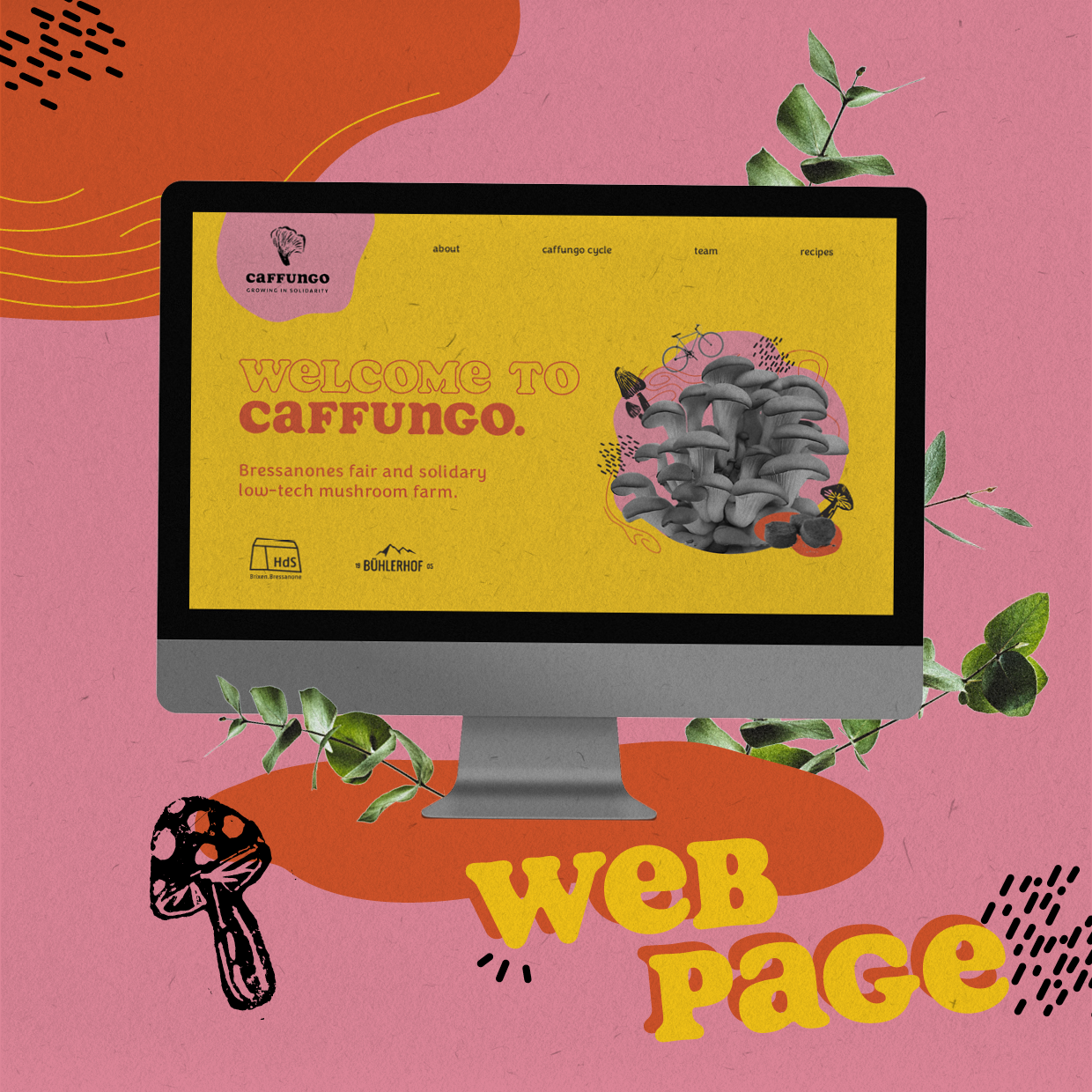
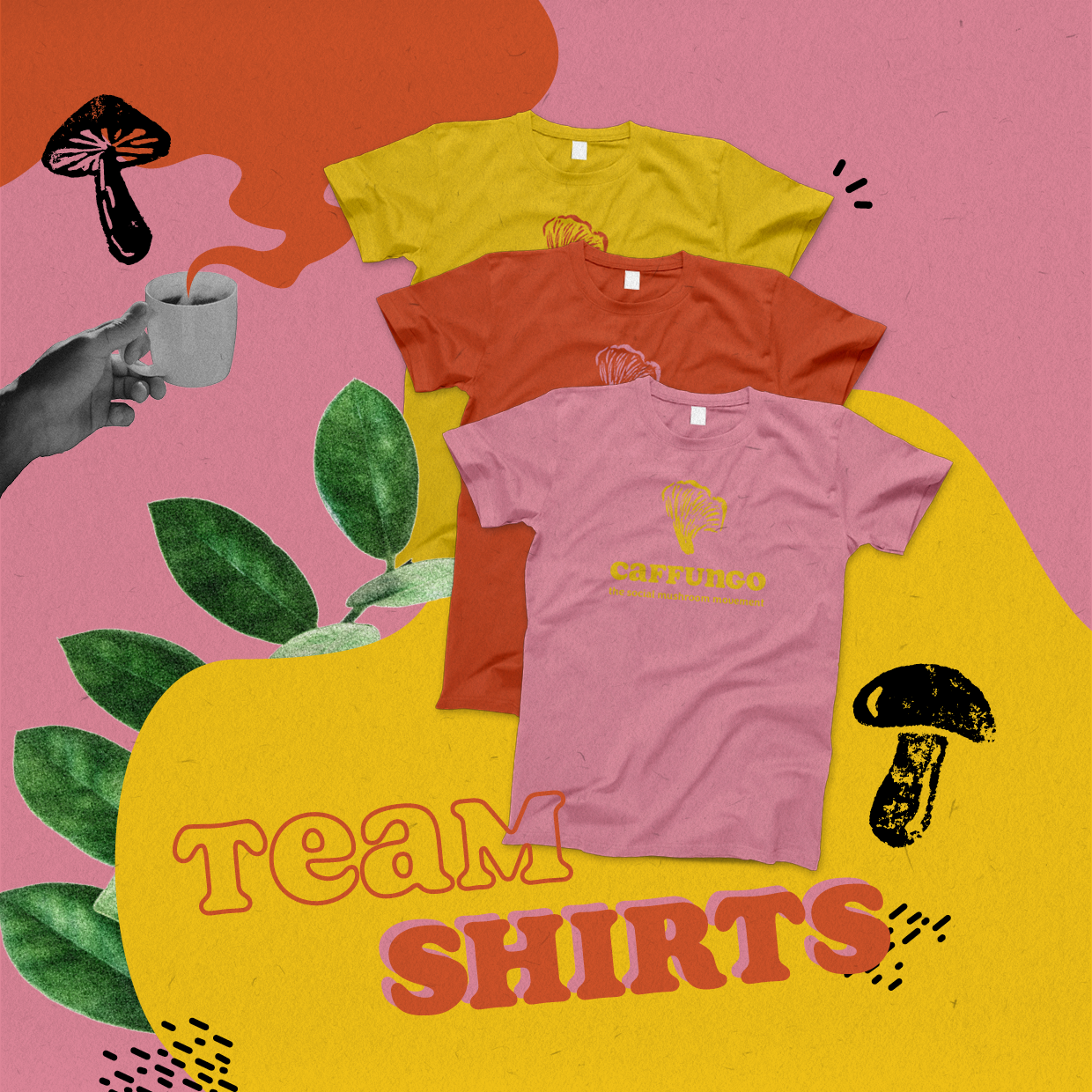
The developed design was applied in some marketing ideas to show a perspective for possible future actions that can increase the awareness of sustainable and social mushroom cultivation - in the region but also beyond.
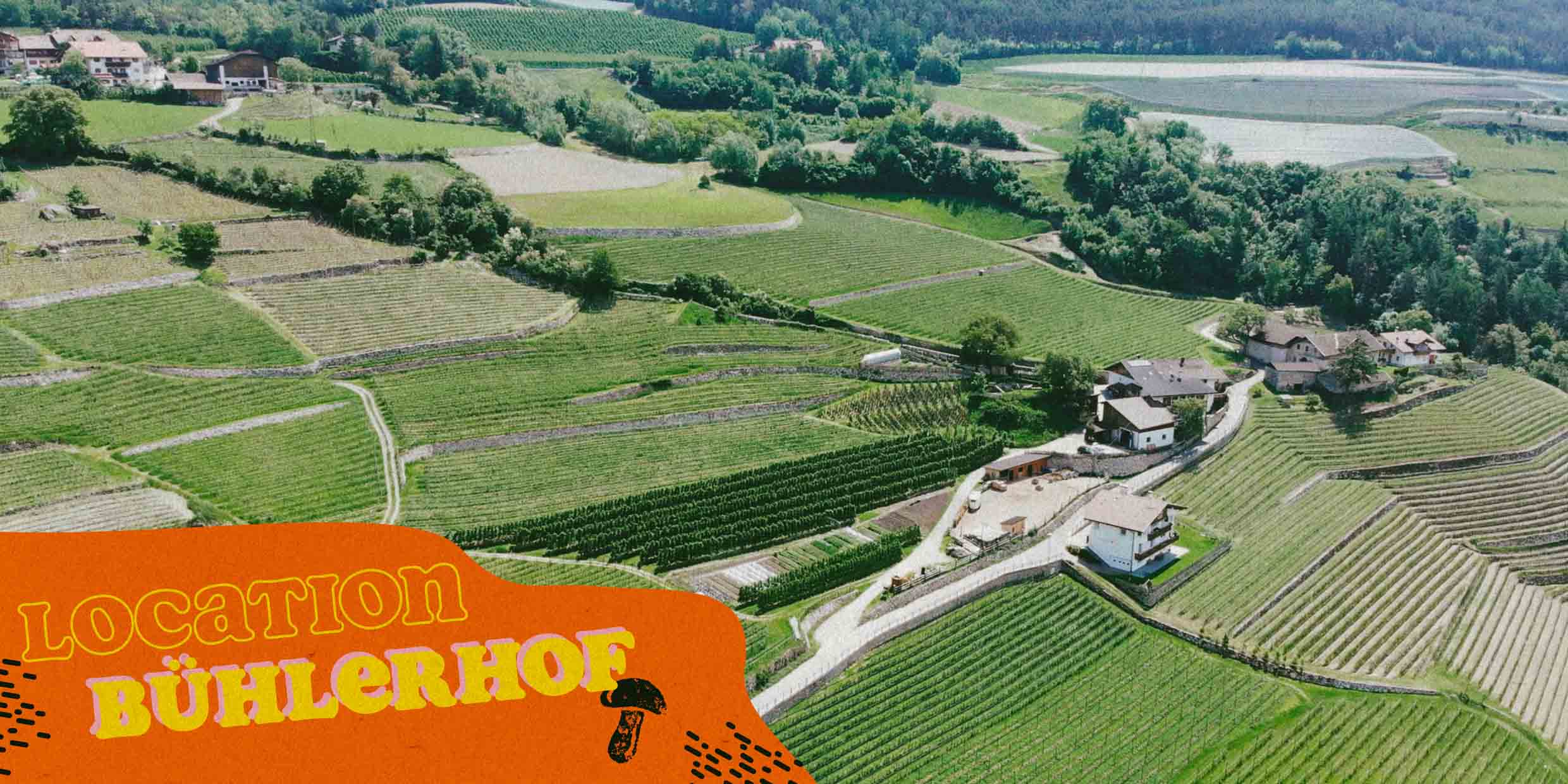
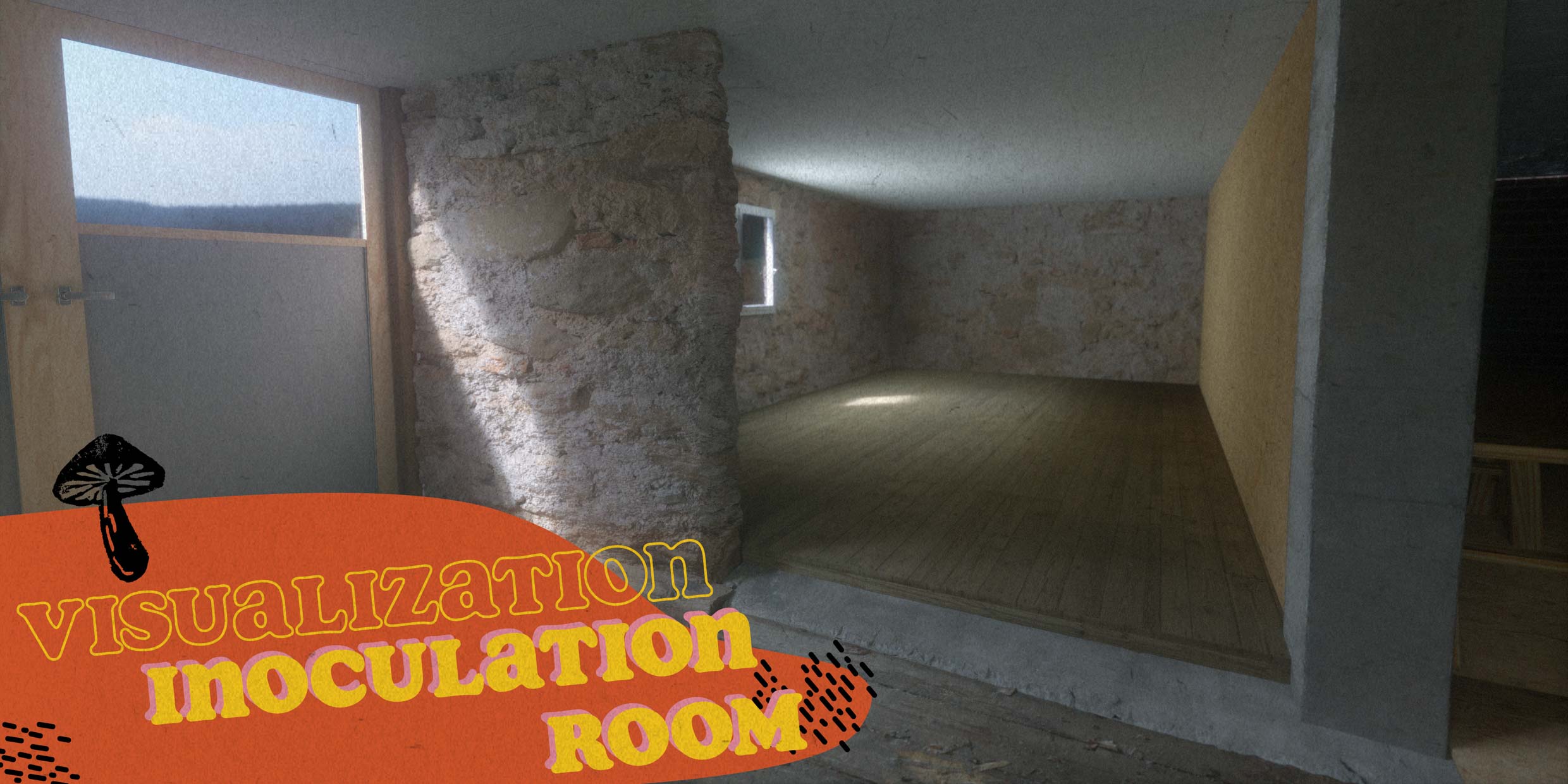
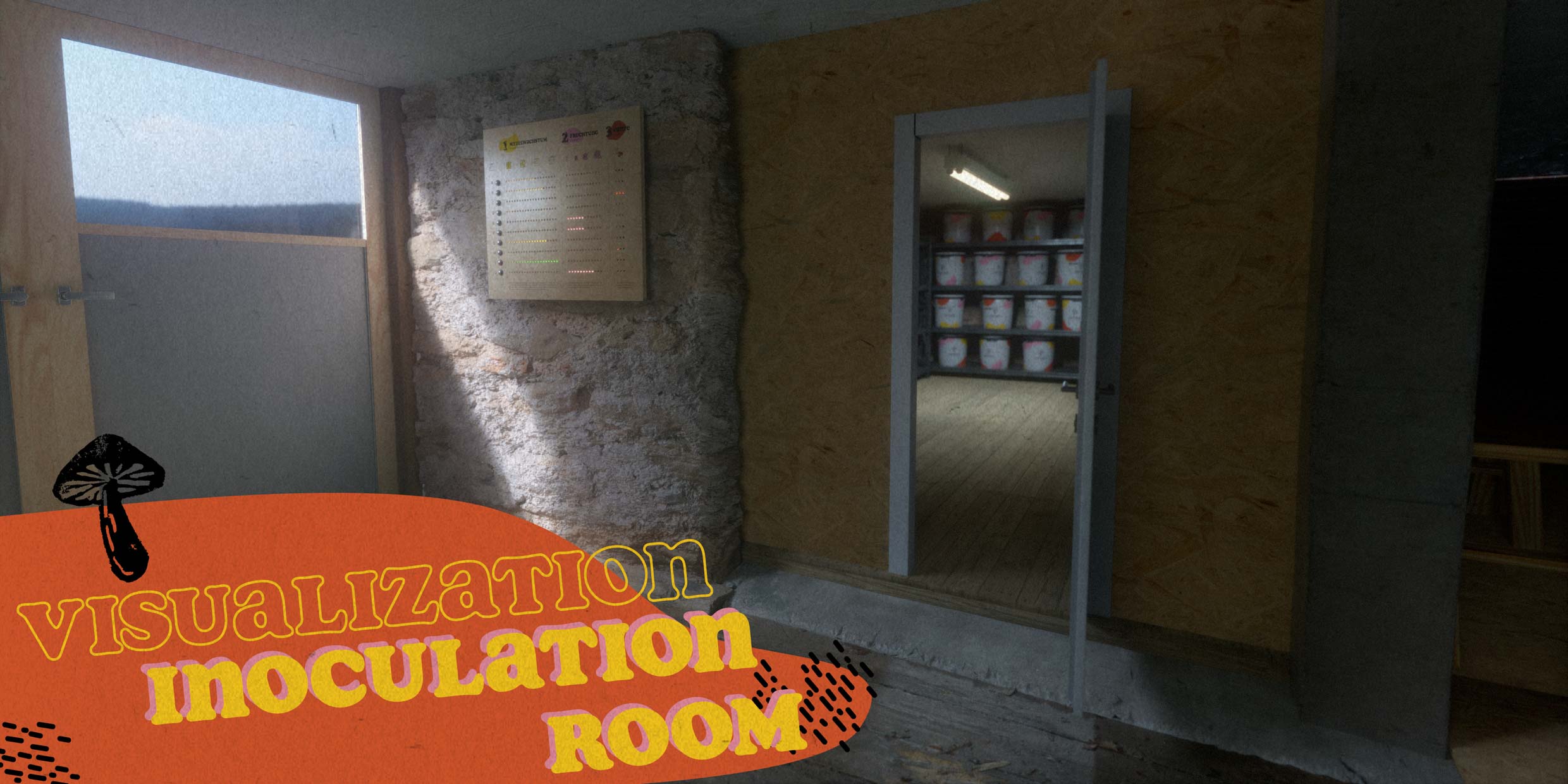
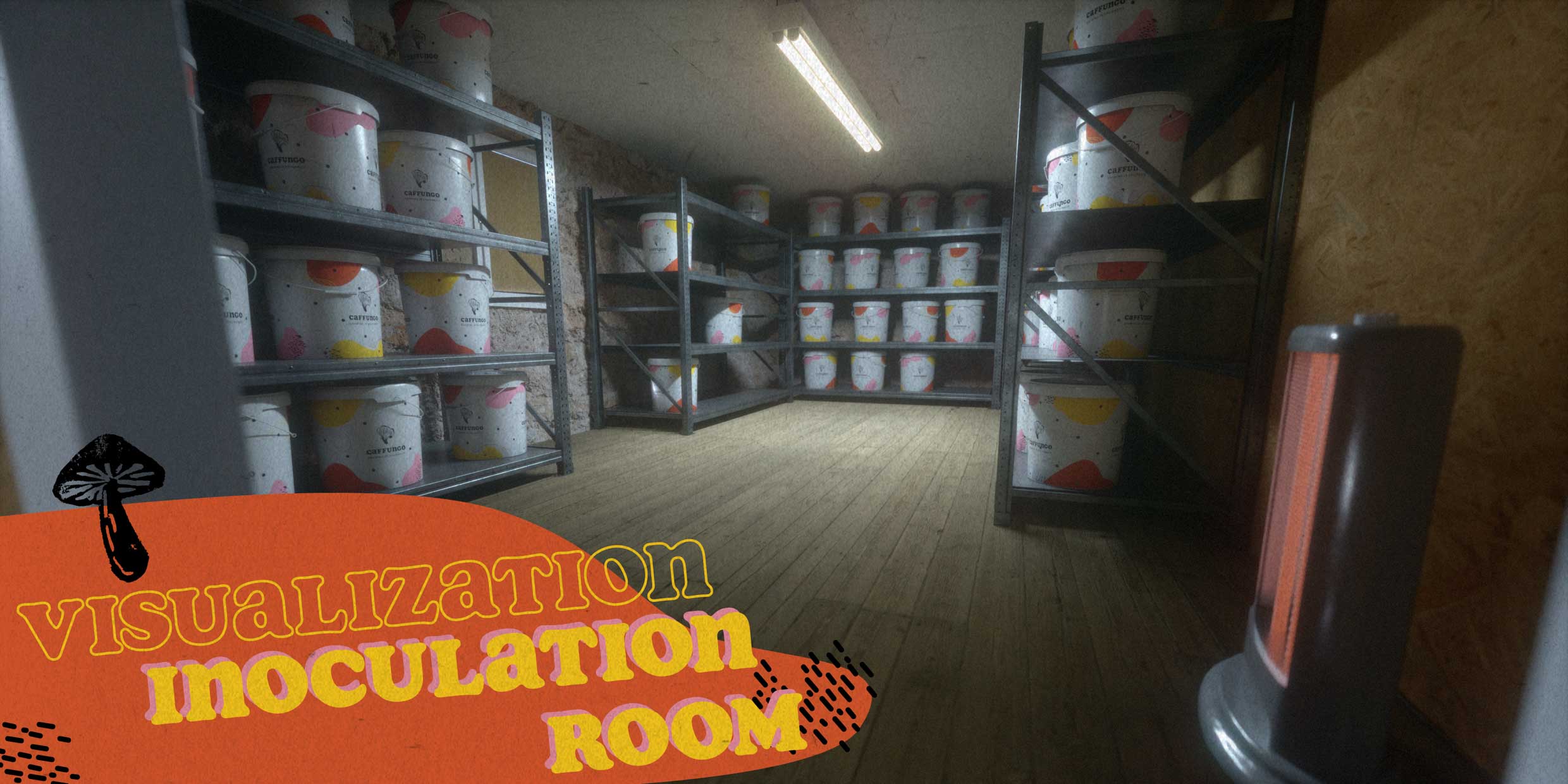
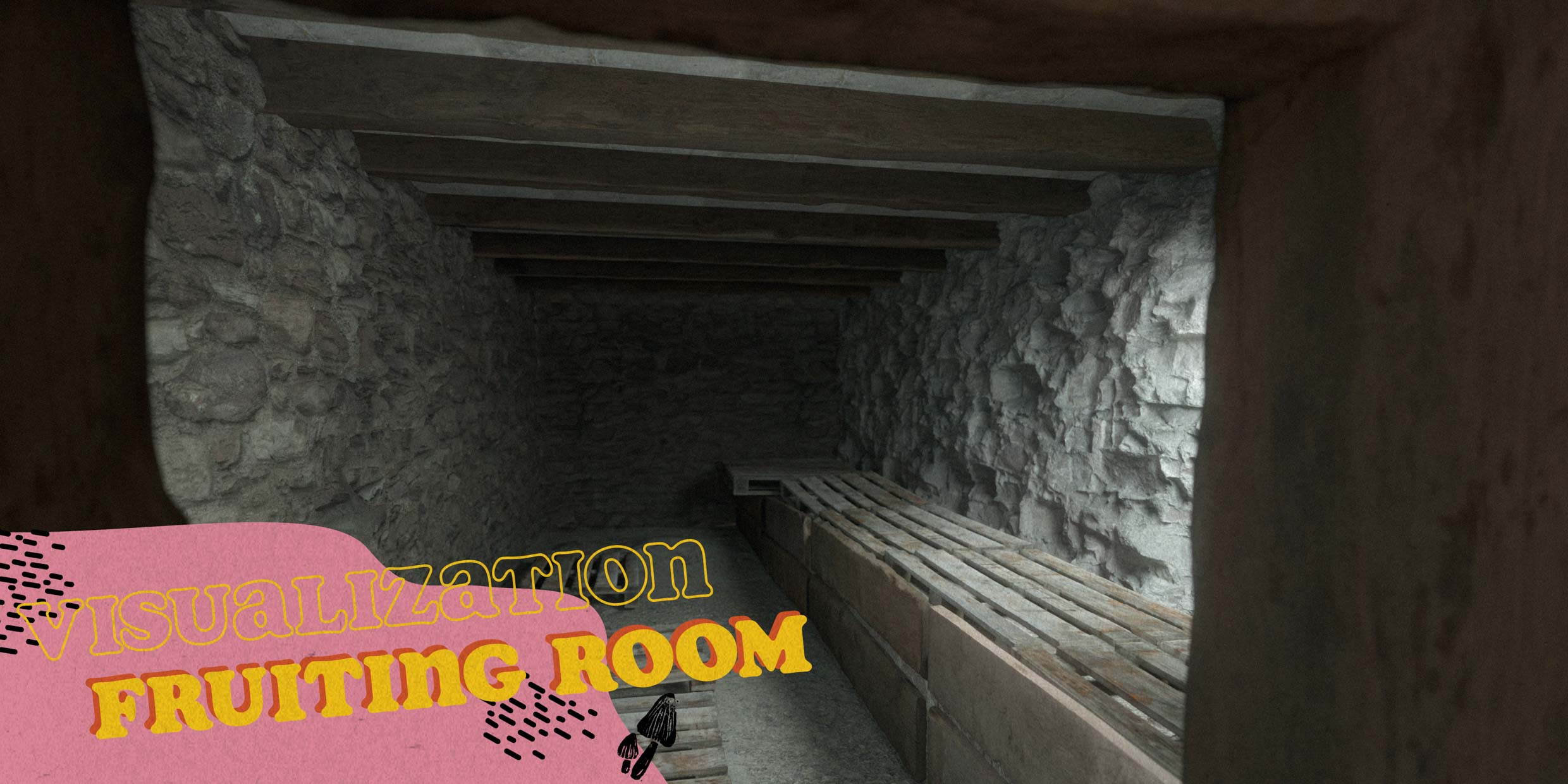
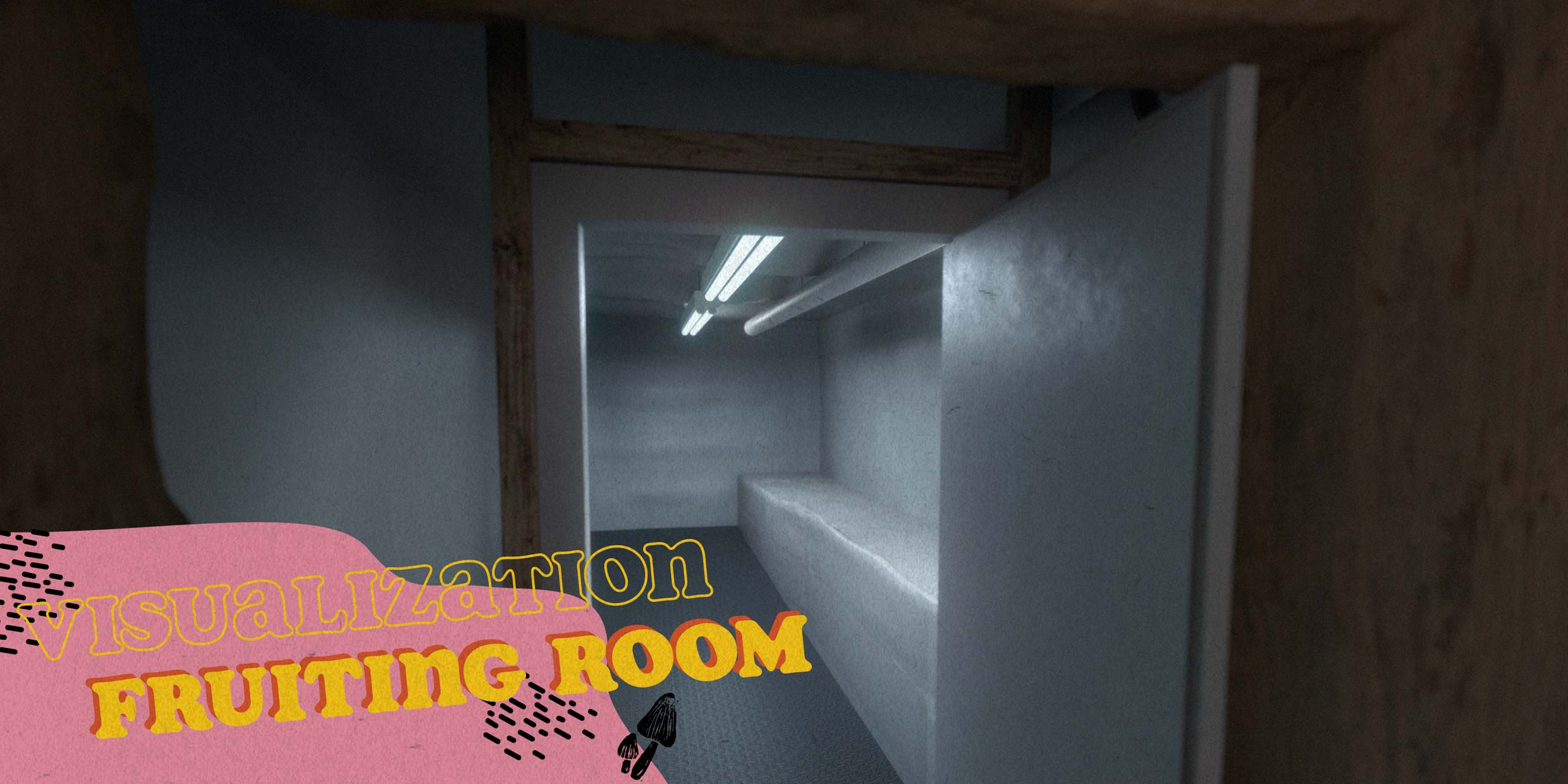
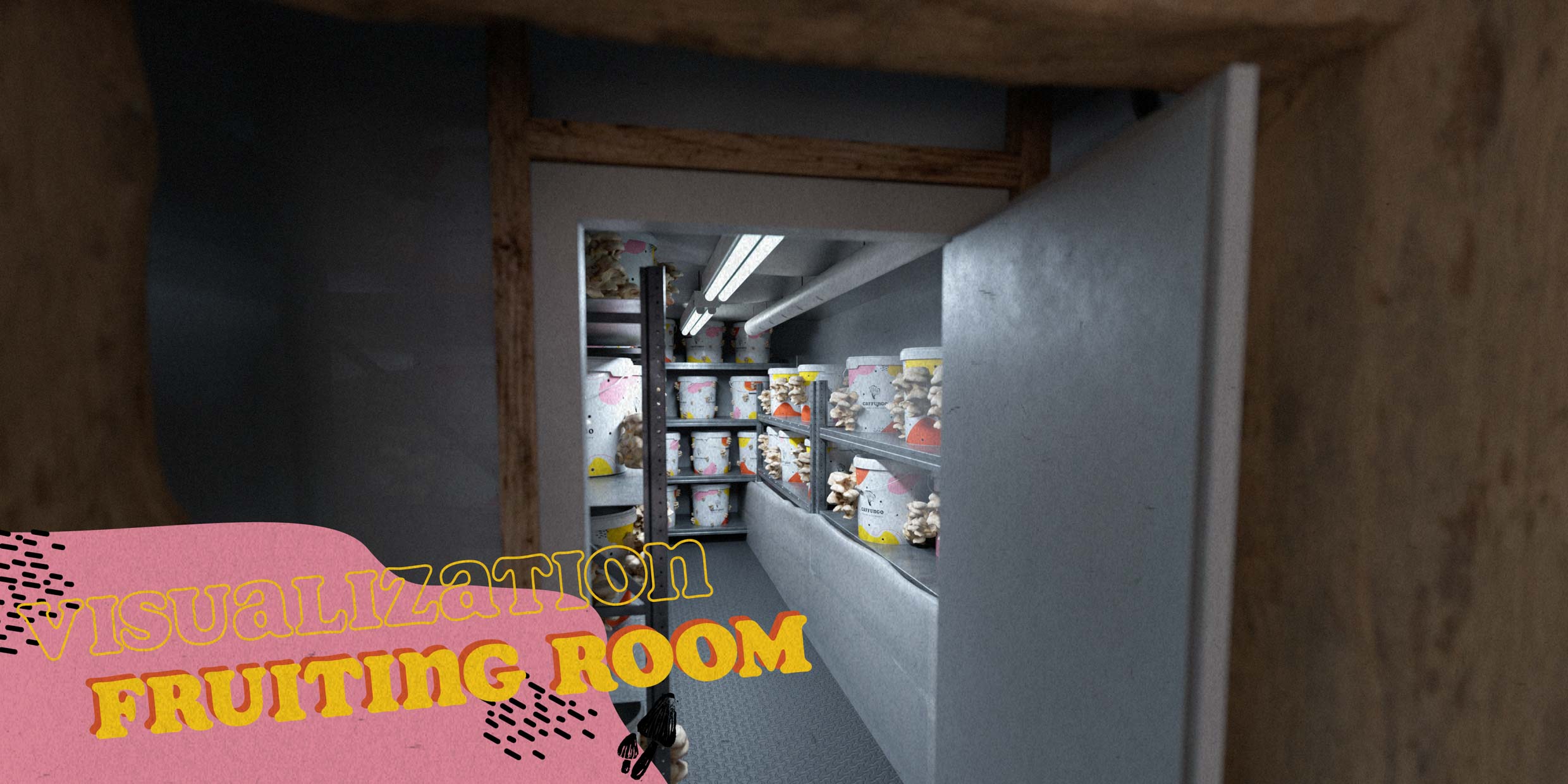
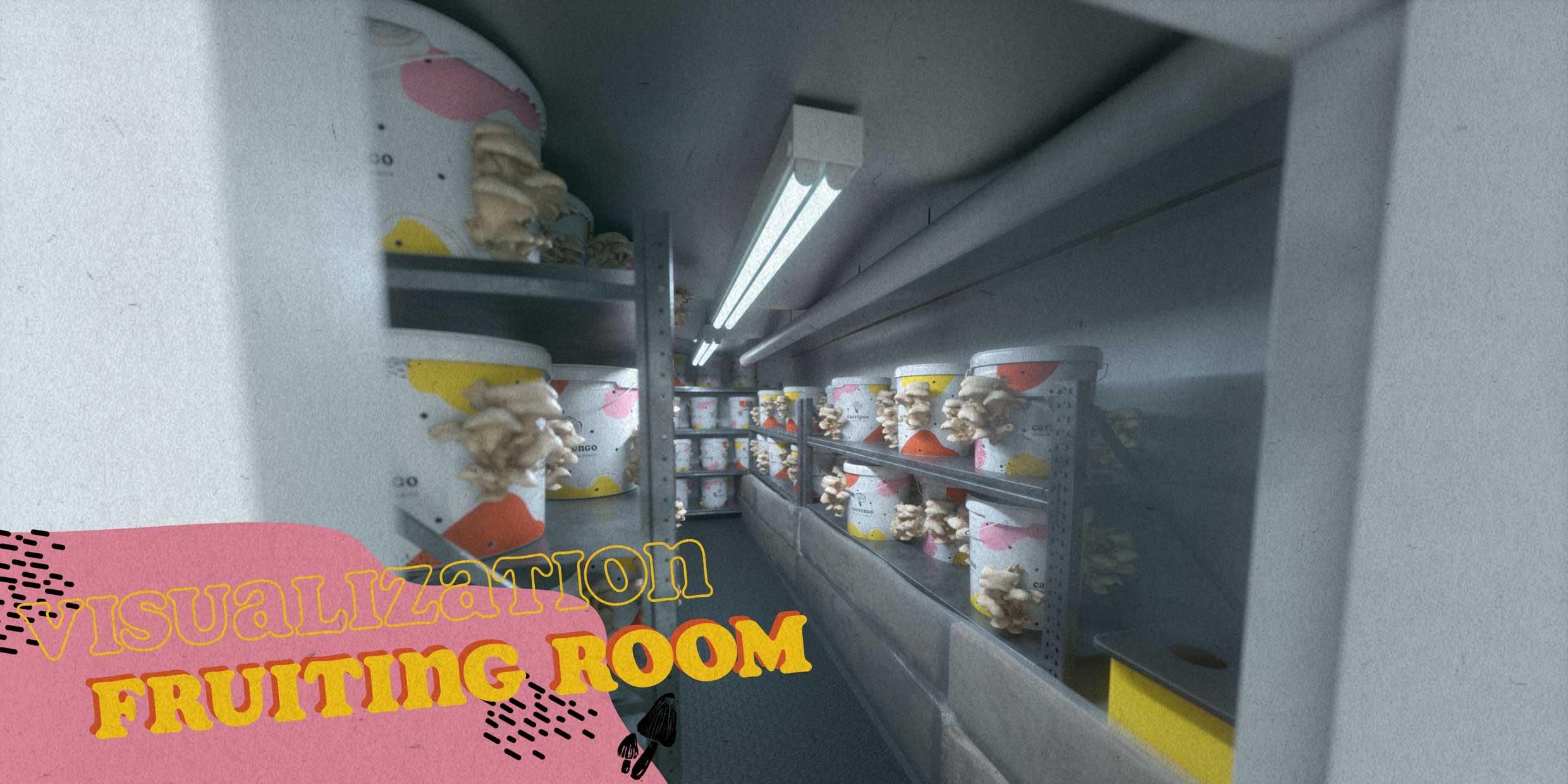
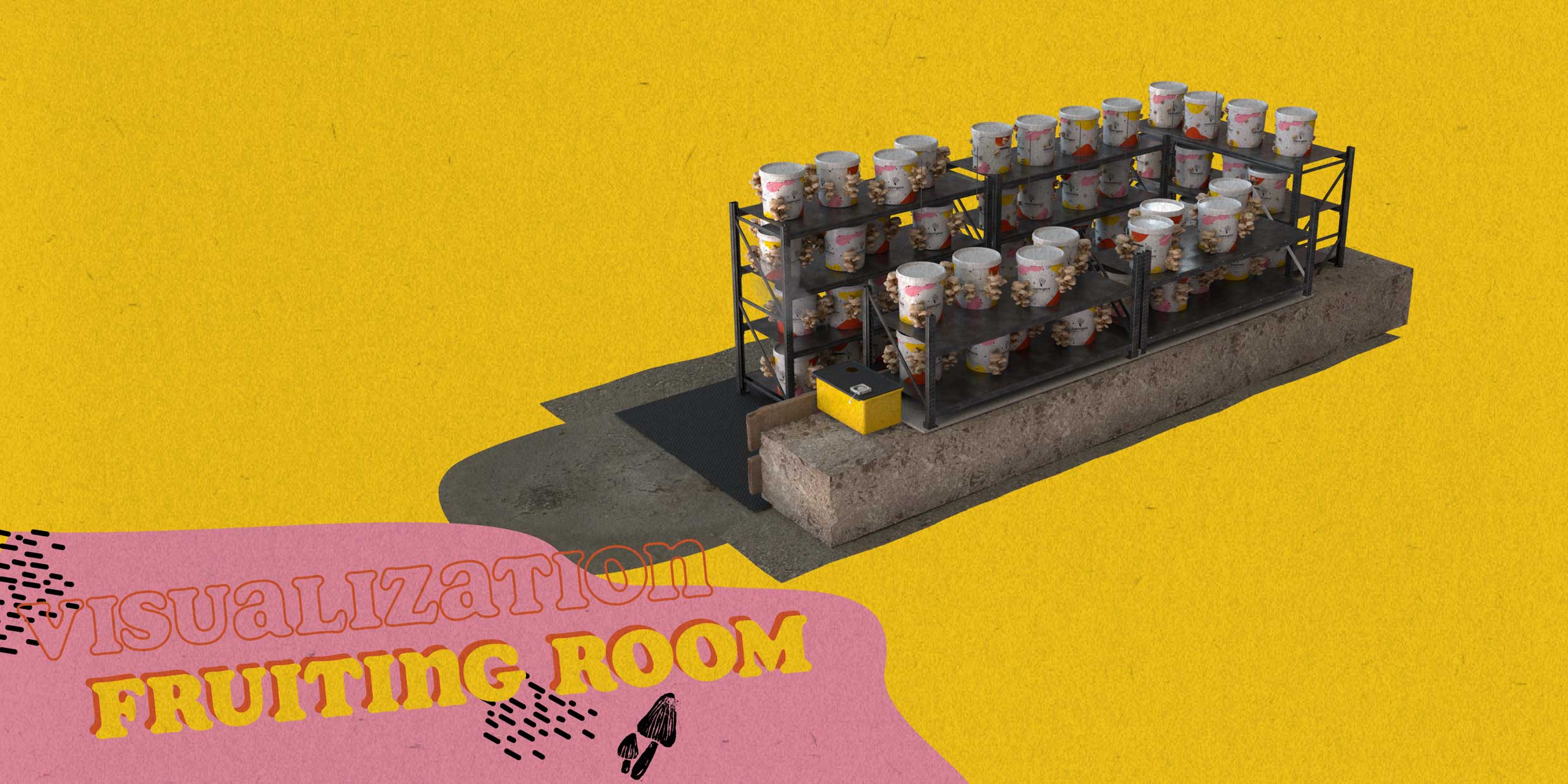
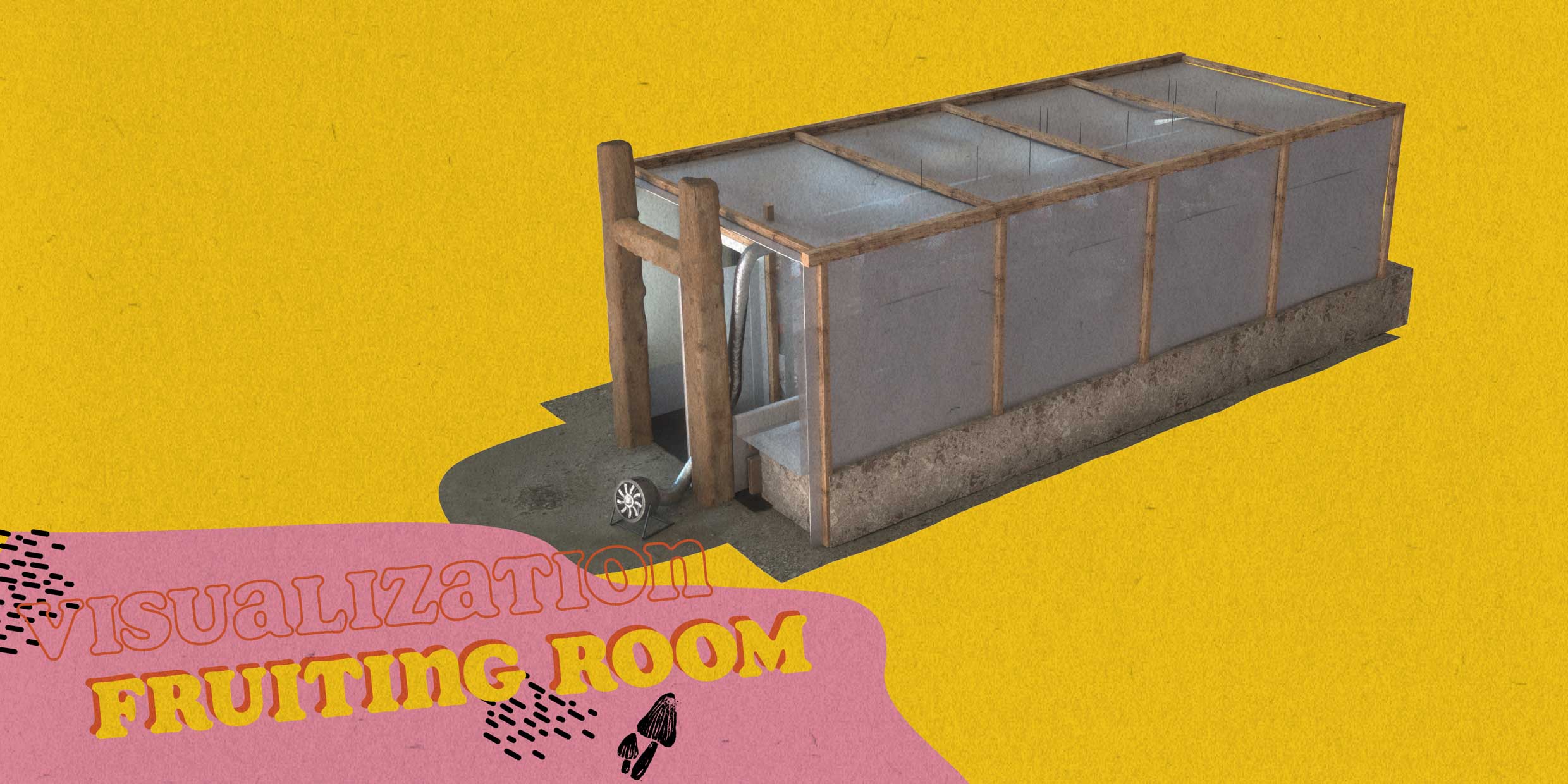
Together with our partners we planned and budgeted the construction of the necessary growing rooms within the premises of the Bühlerhof. An unused storage room would be turned into the ‘Inoculation Room’ and the potato cellar would become the fruiting room.
For this first stage of the project, we would have grown 50 buckets simultaneously, generating enough revenue to sustain the project and pay a fair wage for two full-time employees out of the HoS.
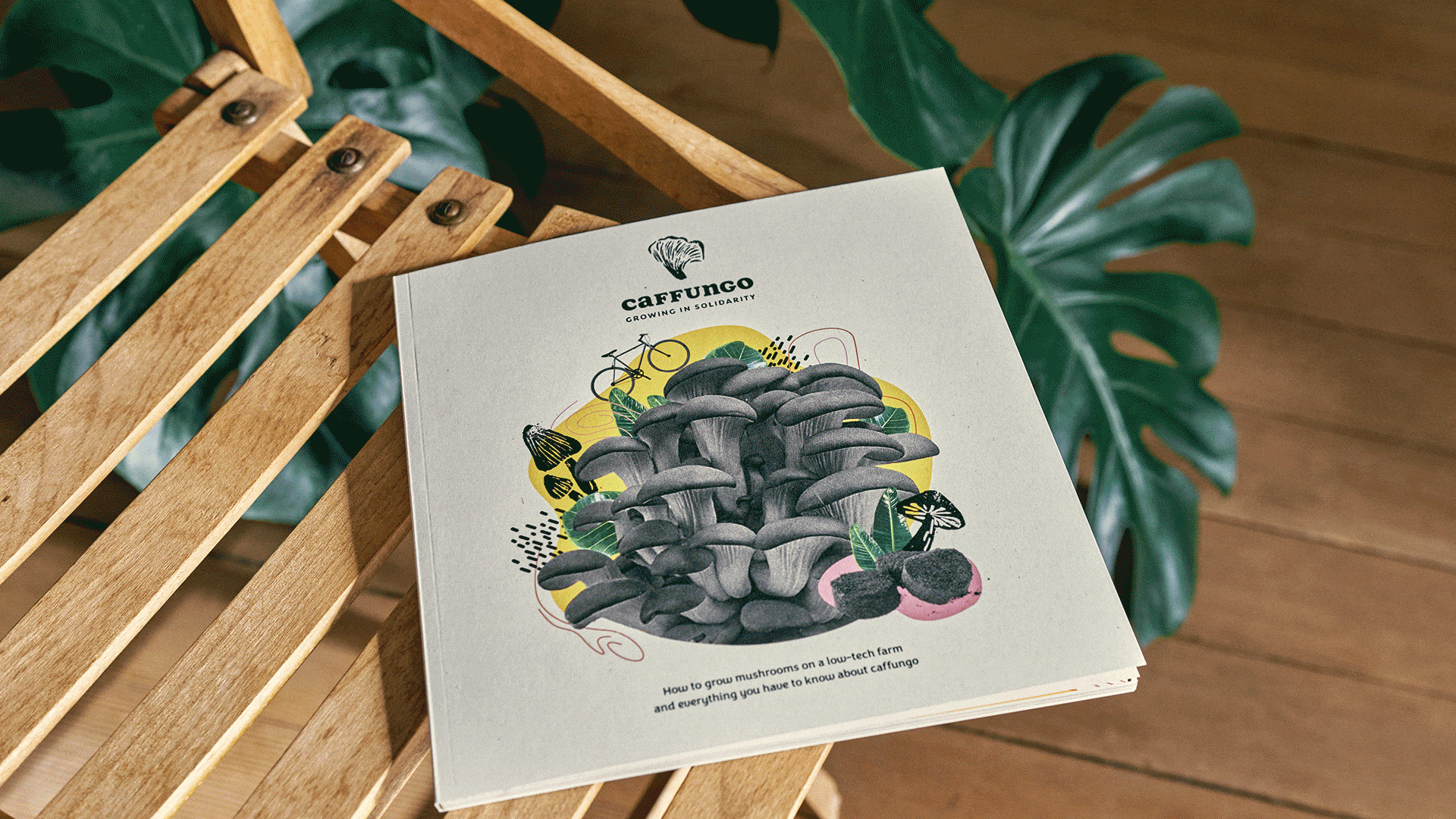
synthesization
It doesn’t have to be a complex process to grow oyster mushrooms and start a successful eco-social business at the same time.
We summarized all the knowledge gathered to do so and everything surrounding the topic of mushroom cultivation throughout the semester in a handbook. It includes information about mushroom cultivation processes, concepts for the farm’s structure, coffee collection routes, ideas for the future such as marketing strategies, a business strategy, and how to implement it in Bressanone.
This booklet contains everything to start and grow the project and was handed out to our partners.
first steps of implementation
caffungo as a social business was planned to scale up in four phases until it would have reached its maximum sustainable size. We successfully initiated phase 2 of that plan and together with a potential employee, set up our first buckets.
Unfortunately, this was also the last activity we were able to do.
The project was to be implemented, but sadly never came to fruition because of external circumstances beyond our control.
final remarks
My project partner Julia and I are convinced that caffungo as a social business has great potential to have a positive impact on the lives of some people. We are at the moment searching for other social organizations that would benefit from caffungo and who are open to the creation of a sustainable mushroom farm and workplaces.
If you are interested in the concept, just send an email to hello@niklasblum.de
We are happy to exchange!